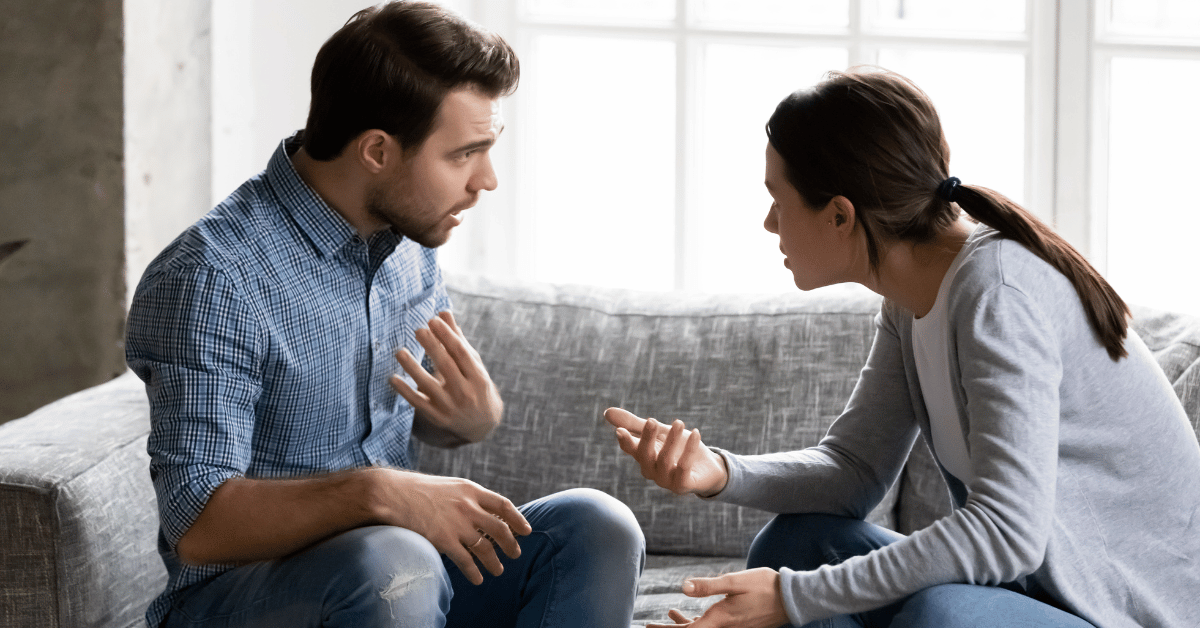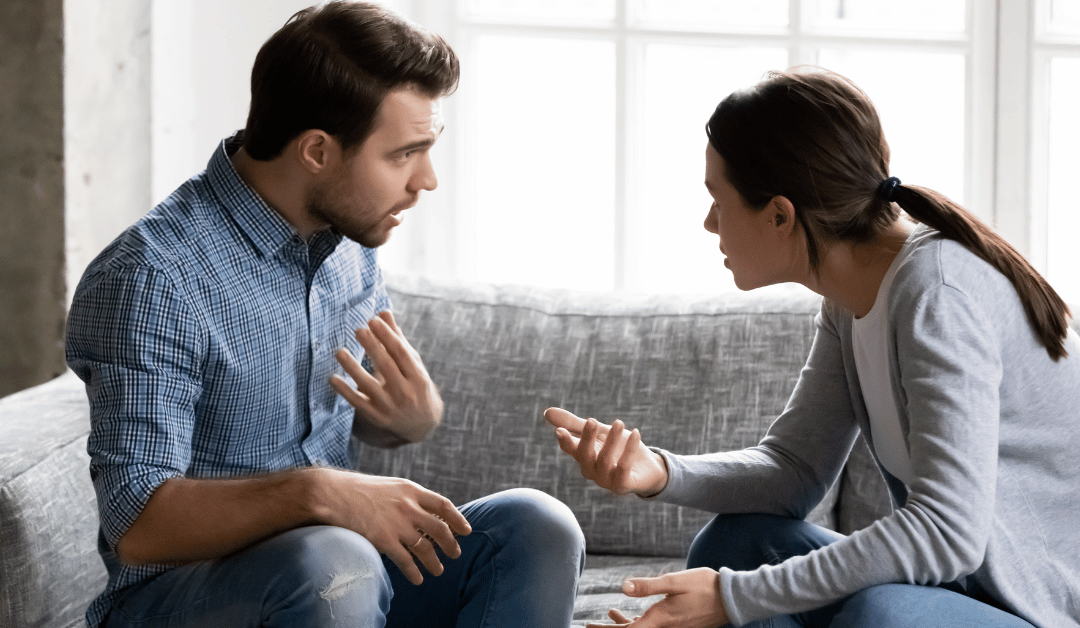Whenever I tried to confront my mother about her behavior, she would always find a way to turn the tables and somehow blame me. Her ability to make me the bad guy never ceased to amaze me.
And I know I’m not alone in this. Here a few things I hear from family members:
- “He would always blame us.”
- “She made it quite clear that I am the bad person.”
- “He’s angry at me for being angry he’s been drinking.”
- “He makes me feel like everything I do is wrong.”
- “Is it normal to feel like I’m the reason they drink?
- “She’s blaming me for everything.”
- “He says I’m being mean and selfish.”
- “He’s found a narrative for making me the bad guy.”
I hear these kinds of things all the time from family members. In so many words, their loved one blames them. Short of that, their loved one abusing drugs or alcohol will constantly pick fights to keep their loved one’s from being able to focus on their substance use, set boundaries, or otherwise support their own well-being.
This is just one of the many ways in which a loved one’s substance abuse creates dysfunctional relationship dynamics in the family.
The bottom line is this, however: your loved one makes their own choices.
Your loved one makes their own choices.
But there’s this truth, too. No one chooses addiction. No one chooses addiction.
So who, or what is to blame for addiction? Well, there isn’t an easy answer, but there is a whole list of factors:
- The first is genetics. While we haven’t actually identified a gene specific to addiction, we do know that our different levels of sensitivity to stress is genetic and stress is a huge factor in addiction, as the substance use is usually some kind of coping response.
- This means that everything that causes stress is a factor. And one of the things that exacerbates any stress someone abusing substances experiences is the dysfunctional relationship dynamics that their own use generates and creates a vicious cycle.
- Next is insufficient support. So when you couple number 2 with the fact that our society has evolved in such a way that people’s support systems are at least 50% smaller than they were in the 1950s, and in some cases those support systems are non-existent, these things together constitute a huge driver of substance abuse problems and a huge driver of why and how they persist generation after generation.
- But that lack of sufficient support also extends to our health-care system. Health care in the US is very expensive. You have to have resources that many addicted people don’t have in order to be able to access it. And the challenge with substance use disorders is that every issue that our health care system has is magnified exponentially when it comes to treating substance use disorders, because addiction medicine and addiction treatment is very poorly regulated.
On top of that there are huge systemic obstacles that make it prohibitive for anyone who wants to practice addiction medicine to actually do it. This even further limits access to qualified treatment professionals using evidence-based methods.
- Some of the blame can also go to our cultural attitudes about alcohol consumption. I mean, why does anyone have to explain why they don’t drink? No one asks anyone to explain why they don’t smoke. The pressure to consume alcohol is enormous. Such a huge portion of adult social activities revolve around alcohol. And you’re viewed as strange or a party pooper if you don’t drink. This creates a significant and totally unnecessary added burden to anyone trying to abstain.
- And then there’s the pharmaceutical industry that for so long pushed opioid-based pain medication insisting that it was not habit-forming when it most definitely was. And even when the pharmaceutical companies were sued for knowingly pushing this false narrative and these drugs, the award money has not gone to supporting addiction treatment in so many cases. Much of it has gone to law enforcement, despite the fact there is no evidence law enforcement has a positive impact on substance use.
- And speaking of law enforcement, this brings us to the War on Drugs. Criminalizing drug use and incarcerating people for possession has only exacerbated the problem.
But even those areas of the US that have tried to decriminalize drug possession are considering rolling back those decisions as crime only increased – because – going back to reason number 3, our treatment is unregulated and cannot effectively address the problem.
The places that have successfully decriminalized drugs were only successful because they took the money they saved and invested it in treatment programs and support programs for those recovering from substance abuse. But in the US at least, we do not have an addiction medicine or treatment system that could viably and effectively address the addiction crisis on a large scale. We should decriminalize drugs, but we need an effective addiction treatment system before we do.
Why is all of this relevant to you getting blamed for your loved one’s use?
Because it’s important to know that it’s not you, first of all.
And it’s important know the factors and identify where you want to try and push for change.
In my own work, I focus on helping families disengage from those dysfunctional relationship dynamics – one of which is your loved one trying to assign blame for their behavior to you. But I also help families use evidence-based methods to have a positive influence on their loved one’s use. This is something that the treatment system is way, way behind on.
Finally, we need families to be aware of these methods so they can both employ aspects of them themselves, and pressure the treatment industry to use them more widely. You can check out a brief overview of those methods in my previous Hope for Families TV episode.
And if you’re interested in learning more about those methods beyond my previous Hope for Families TV episode, you can check out online Workshop, The 5 Ways to Have a Positive Influence on a Loved One’s Drug or Alcohol Abuse. I’ll put a link in the show notes.
So, I’d love to hear from you: which of these things do you suspect is the biggest factor in your loved one’s drug or alcohol abuse? If you feel comfortable, share in the comments. I promise I’ll reply.


0 Comments